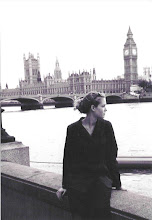Here is another great book I just happened to grab quickly in the grocery store and yet again managed to find a jewel. Here’s to the book buyer’s at Fred Meyer’s Supermarket! But seriously, here is some info:
Title: The House at Sugar Beach-In Search of a Lost African Childhood
Author: Helene Cooper
Publisher: Simon & Schuster
Publishing Date: 2009
My start date: 7/15/10
My finish date: 7/22/10
It seems that whenever I start on a memoir, I stick to the memoir genre for awhile. This isn’t intentional and I have no idea why I do it, but it worked out that way again. However this memoir couldn’t be more different from the one I had just completed.
In The House at Sugar Beach, international journalist Helene Cooper spends the first half of her story regaling the reader with the cushy and happy childhood which she experienced as a member of the extremely elite upper class of Liberia, a childhood enabled by the legacy handed down to her through membership in this tiny, borderline inbred, class made up of the descendents of a handful of ruling freed black Americans who took over and founded the country in the earlier part of the nineteenth century. Each member of this upper class can trace his or her heritage back to these early colonists through belonging to one of seemingly only a dozen or so major families and those four or five percent of the population held all government jobs and intermarried only amongst themselves. Cooper’s family history provided for a comfortable childhood, which she introduces to us through endearing stories of family outings and gatherings, holidays and school events, peppered with traditional Liberian English exclamations.
However, all of this changed when a bloody coup left her family on the run and in grave danger. This switch between childhood bliss and jarring, war-torn adulthood is readily acknowledged as the memoir is conveniently divided into Parts I and II, the one shifting into the other as her plane lifts off the ground headed for the safety of America. While the childhood experiences are halcyon, the stories detailing the experiences of her family and friends during the coup and the following years of unrest and civil war are blunt and not for the faint-hearted reader, although not by a long shot among the most graphic I have read. For example, my first blog reviewed the memoir of a boy soldier in another war-torn African country and those pages made Cooper’s stories seem like a Disney story. Cooper’s story ends (mostly) happily, where the brutal holocaust literature I read in school leaves you wanting to scream in the end. So don’t be deterred from reading this excellent memoir just at the hint of a little violence. Like many others, this is a story that needed to be told and should be read.
Among other things, I would recommend that this book be read because, to be honest, I had no idea that the United States had ever attempted a colony. (No political snarky comments about Iraq and Afghanistan please, that is a whole other blog) I consider myself a fairly well educated individual in the realm of international affairs, however I admit to having very little awareness of Africa. In my class readings I had occasionally heard vague references to the idea that the U.S. had wanted to set up an African colony to which they could ship off freed slaves, but I had no idea that they had successfully followed through with that plan and the result was Liberia. Nor had I ever really thought hard on the connection of the word Liberia to the romance stem of “freedom”. America’s short-lived attempt at status as a colonial power is absolutely fascinating, despite the obviously tragic outcome.
Cooper is an extremely successful journalist and her journalistic writing style comes out in her memoir. While the stories are told well and are engaging enough, I would not classify her as a great story-teller in the same sense that many of my other writers have been. Then again, I am finding that to be pretty consistently the case among my memoir writers, as you have noticed in my blogs. In these cases I try to focus on the uniqueness and value of the stories they have to tell rather than on their brilliance as a writer and Cooper’s story is decidedly a great one.
I have one final note. I also seem to attract a lot of books making use of varying dialects. I forgot to mention in my previous post the frequent use of South African colloquialisms by Richardson. Before that I mentioned my struggle with Marshall’s questionable dialect usage. And I made very direct commentary on the dialect back in The Book of Night Women. Here again I will note that Cooper slips regularly into Liberian English and while most of it is pretty clear and other parts she translates, there were occasions when I simply had to admit that I had no idea what she meant to say. It didn’t detract at all from the book, but be it is in there, just FYI .
Ok, from memoirs to classics. Up next: Hawthorne’s timeless The Scarlet Letter.
Keep Reading!
Sarah
Subscribe to:
Post Comments (Atom)

No comments:
Post a Comment